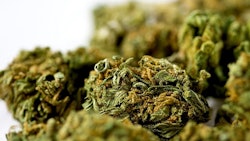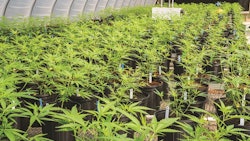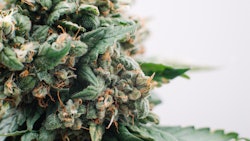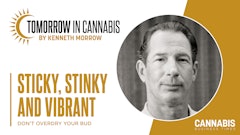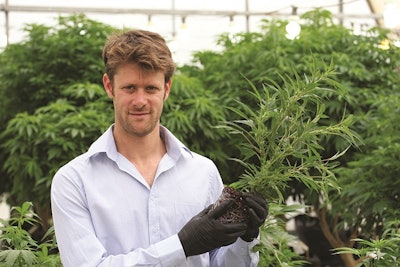
Pharmocann has been operating since 2008. In those 10 years, it has become one of the most trusted medical cannabis producers in the country, servicing 4,500 patients monthly. Now, it has its sights set on becoming a player in the international market and is developing a line of Hydro-Gel dermatological products. In this candid interview, Shaked, Pharmocann’s head of cultivation, shares the challenges of expanding internationally, why the farm only chooses to produce 11 strains, the type of automation and beneficial insects the farm uses, what Hydro-Gel is, and much more.
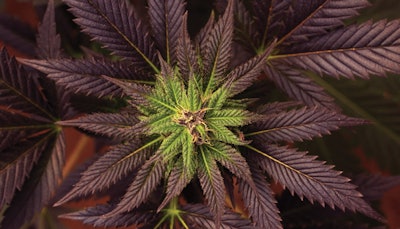
Scott Guthrie: What is Hydro-Gel, and what Hydro-Gel products is Pharmocann developing?
Asaf Shaked: Hydro-Gel is a natural gel produced as an extract from a specific cactus that has a hydrophilic ability to bind well with water-based medical cannabis extractions. This enables us to produce a range of medical cannabis products that can relieve and reduce the acute pain and irritation typical of chronic dermatological problems such as Atopic dermatitis. Our lead product is a defensive Ointment Care & Skin Rehabilitation, which rapidly alleviates itching and irritation of the skin. This product has been administered to children in Israel and Switzerland with impressive results and is planned to undergo clinical trials in Israel. Our moisturizing Soap-less Soap offers a unique solution to the acute dry skin of Atopic dermatitis patients. Our Medical Cannabis Ointment alleviates local pain, treats chronic skin afflictions, assists in the healing of wounds, infections and external ulcers, fissures and hemorrhoids. We have also developed a line of cosmetic medical cannabis products for men and women that are also hydro-gel based.
Guthrie: Pharmocann has decided to shift away from smokable products to become more established in the medical cannabis community. Why?
Shaked: For years, medical cannabis suffered from the stigma attached to recreational cannabis. Older patients refused to use it, and others had trouble smoking it. Moving to extract-based products enables us to control the compounds of active substances, adapt them to the suitable treatments as indicated by the Israeli Ministry of Health and make them more accessible to patients. The Israeli Ministry of Health is now in the process of passing a new regulation that will enable the sale of these products in pharmacies locally. Simultaneously, we are close to concluding agreements on the production and sale of these products in Australia.
Guthrie: Pharmocann only cultivates 11 strains. Why has the company been so selective and limited in the strains it develops?
Shaked: People often confuse recreational cannabis growers with medical cannabis growers, expecting us to offer a wide range of strains. However, with medical cannabis, our main consideration is to keep and maintain the strains whose effects on the symptoms of various diseases have been well-proven over the years by analyzing our patients’ requirements and feedback. Working with a few research laboratories, like the Cancer Biology and Cannabinoid Research headed by Dr. David (Dedi) Meiri at the Technion, Israel’s Institute of Technology, enables us to consistently check our products and new genetics to understand their effects on different conditions and meet the Israeli Ministry of Health’s regulation standards. This is the reason why we stick to 11 known and well-tried strains.
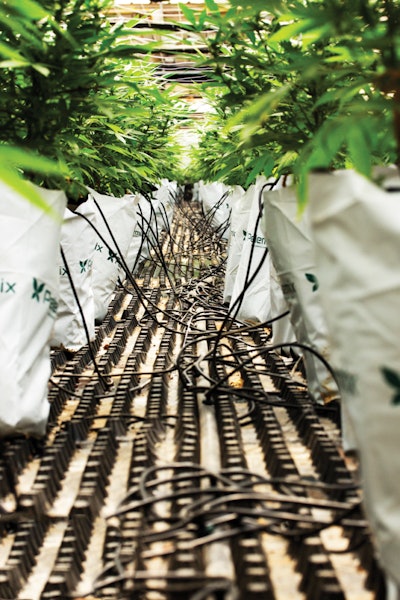
Guthrie: You have partnered with Israel’s top medical cannabis labs to help ensure product quality. How do these partnerships benefit Pharmocann and help it stand out from the competition?
Shaked: Pharmocann has chosen to collaborate with Panaxia, a leading laboratory in the Israeli cannabis industry, and Professor Yehuda Ullmann, director of the Department of Plastic Surgery at the Rambam Health Care Campus, with whom we are conducting a clinical study at the Technion because we have set ourselves a high-priority target to meet the quality standards leading to the production of cannabis at the medical level, in line with global standards.
Looking forward, we see these professional collaborations as a growth engine of knowledge needed for the development of new products and quality control, and to stay on the forefront of medical cannabis manufacturers in Israel and abroad.
Guthrie: You apply pharmaceutical standards to your products. Why is this such a point of emphasis for Pharmocann, and how do you ensure product consistency?
Shaked: Adopting standards—such as certification for the quality of production where medicines and practices are evaluated, regulated and recommended on the basis of experimental process, and becoming one of the tools that doctors can use for their patients—enables us to offer our vast knowledge of production systems to international markets. As we well know, in these markets, distribution, marketing and the use of cannabis are measured according to medical criteria. At the same time, we are concerned with guaranteeing high standards and top-quality products for the 4,500 patients we service locally.
Consistency is one of our biggest challenges. Working in large-scale cannabis growing, you must maintain consistency and quality. To ensure this, we meticulously follow precise practices: using an irrigation and nutrients system, performing in-field daily plant inspection to detect problems and bad insects, using a formulated growth substrate, working closely with qualified cannabis laboratories to ensure the plant’s quality and using statistical analytical methods to ensure consistency and repetition.
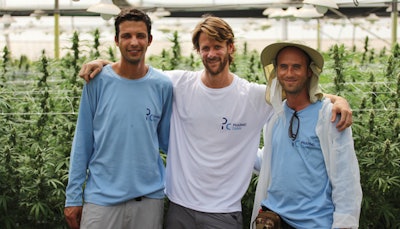
Guthrie: Pharmocann is considering expanding into North America and Europe. How is that process going?
Shaked: Pharmocann is indeed involved in projects related to medical cannabis worldwide. We have interests in North America, Europe, Africa and the Far East. And true, this process is not simple. We have encountered several difficulties along the way: adaptation of local law to the use of medical cannabis, regulation of the medical cannabis market in the target country, lack of coordination between governments in the context of medical cannabis, high complexity of genetics import/export processes (which are virtually almost impossible) and the lack of premium quality genetics in some countries due to the heavy restriction on import/export.
Guthrie: Your farm is in the Jezreel Valley. Why is this such a prime location for cannabis cultivation?
Shaked: The Jezreel Valley and the east side of the Lower Galilee hills, located at 350 meters above sea level, is known since biblical times to be one of the richest agricultural areas in Israel. There are many sunny days with long daylight hours that support a high level of solar radiation. Daytime temperature differences are relatively minor; the nights are normally warm, and the region enjoys quality irrigation water.
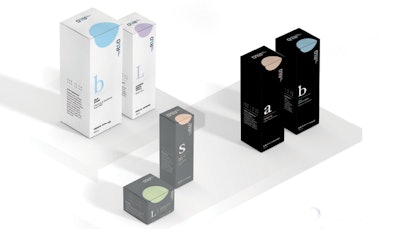
Guthrie: Have you implemented automation at your farm? If yes, what types and how has it impacted operations?
Shaked: We have a fully automated irrigation system that controls water quality, nutrient supply and irrigation cycles. We also have different sensors that accumulate data, which is analyzed by the system. [It] receives its own feedback and can correct itself. Our climate control system monitors humidity, temperature, air flow, blackout systems, etc. Our light control is based on solar sensors that can turn on lights to deliver the amount of light the plants need to receive. All our systems are synchronized via a computer. When a high level of solar radiation is detected, the irrigation system will reduce the amount of nutrients, supply more water and the air flow/cooling system will adjust itself accordingly. We have recently introduced [automation] of our harvesting and oil extracting systems and are currently developing new technical innovation for our industry.
Guthrie: Does Pharmocann use beneficial insects in its day-to-day operations?
Shaked: Our cannabis growth is regularly monitored by a qualified and well-experienced agronomist who specializes in pest management. Following his guidance, we use different types of beneficial insects produced by BioBee Biological Systems from Israel. These insects are scattered inside the greenhouses [strategically] to prevent and control the biomass of different pests such as spider mites, aphids, whiteflies, etc. Our best beneficial insect helpers are Persimilis, Swirskii and Aphidius.
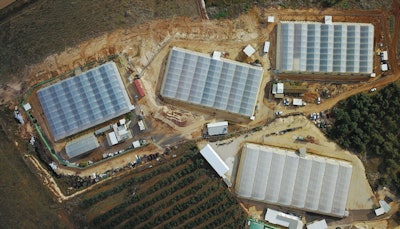
Guthrie: Why is Israel such a hotbed for cannabis research and cultivation?
Shaked: Because of professor Raphael Mechoulam of The Hebrew University of Jerusalem, who isolated the active component in cannabis (THC) in 1964 and paved the road for major research funding that started pouring in from leading universities in the U.S. at a time when no research involving cannabis was allowed in the U.S. Soon Israel became a leader of cannabis research, and when medical cannabis was permitted for cancer patients and pain-related illnesses in the early ’90s, cultivation followed, giving the growers an edge over other countries through their acquired experience.










